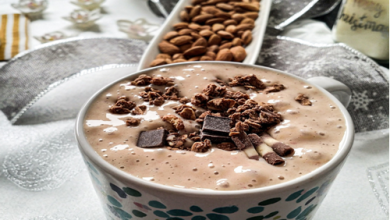Can Fructose Cause Digestive Problems?

According to Marham Fructose naturally occurs in fruits and vegetables and is treated as a sugar. An individual is said to have fructose intolerance when he cannot digest fructose in any form available. In this case, such individuals face continuous pain in the abdomen and conditions of diarrhea. People experience chronic diseases like kidney and liver failure in some extreme situations due to fructose intolerance.
Table of Contents
Types of Fructose Intolerance
There are many types of fructose intolerance in the human body. A few important types are mentioned below.
Essential Fructosuria
It is a harmless type of fructose intolerance as the individual having it might not even know about it. It is considered a recessive disorder, meaning you will have it only if it is in the genes of both your parents. Otherwise, they will be just carriers if they will receive it from only one parent. They will become carriers if they got the gene from a single parent only. Particularly, individuals with this type of disorder do not have an enzyme in the liver that helps in breaking down the fructose during the digestion process. It is not considered a harmful disorder, and individuals with such conditions do not require any urgent treatment.
Fructose Malabsorption
It is a type of fructose intolerance where people suffering from it cannot digest fructose. As a result, the fructose goes directly into the large intestine, which causes extreme pain during digestion. A few of the individuals having this type of fructose intolerance are sensitive toward a group of foods containing the FODMAPs.
Hereditary Fructose Intolerance
It is a severe type of fructose intolerance treated with time. People suffering from this type of fructose intolerance do not have an adequate amount of fructose-1-phosphate aldoses, which is an enzyme that assists in digesting fructose from the food. In this way, the fructose that does not get digested starts to gather in the kidneys and liver. That is why it can lead to severe conditions like a failure of these organs in the longer run.
Symptoms
The symptoms mainly depend on the kind of fructose intolerance a person is experiencing during digestion. However, fructose intolerance causes gas, diarrhea, nausea, and bloating.
Fructose intolerance, the type which is caused due to genes, starts to begin in babies when they initiate to eat food. So, a proper treatment needs to begin, or it may lead to fatal conditions in the future. The symptoms of this condition include a strong disliking of anything sweet, frequent vomits, jaundice at an early age, and inconsistent physical growth.
The problem of bloating and food sensitivity causes pain. However, it could be another way around, and they may have difficulty digesting specific carbohydrates. However, it has been noted that fructose is absorbed slowly during digestion. That some people have less amount of transport molecules in their intestine to drag fructose through the lining of their intestines. So, the fructose molecules remain in the intestine, where intestinal bacteria digest them and produce gas that causes bloating and pain.
Diagnosis
A diagnosis of fructose intolerance can be easily made when you experience its symptoms after eating food with this sugar. Doctors have various ways of detecting the problem of fructose intolerance among people. One of the effective methods is performing a test that can detect the amount of hydrogen in a breath of an individual. An extreme level of hydrogen indicates that a person has a problem digesting fructose in his food.
One of the effective methods suggested by many doctors is to adopt the elimination diet. With the help of this diet, a person avoids eating all types of foods, including fructose, and then observes the outcomes.
Treatment
The treatment highly depends on the type of fructose intolerance. The doctors will decide on the type to treat it. For instance, if you have fructose malabsorption, then you may keep a food diary and take a low fructose diet in your routine. So, if you reduce the fructose intake, it will easily decrease the symptoms within about one to two months. Once the symptoms have been reduced, you can then add various food items to your diet to specify how much fructose you can easily handle. Generally, people will fructose malabsorption can have up to 15 grams of fructose in a day without undergoing any symptoms.
However, there is no treatment that can treat hereditary fructose intolerance. In this situation, it is highly recommended that a person avoid consuming any sort of fructose in his diet. A fructose-free diet restricts individuals from eating all types of fruits and countless other foods. In this case, they may need to have a balanced diet filled with all necessary nutrients.
They may need to avoid the following mentioned food items.
- All foods and drinks have high fructose corn syrup, which includes many items such as soda and packed baked goods.
- Sorbitol, which is easily available in candies and gums
- Fruit snacks
Moreover, it is useful to work with a dietitian during the process of treating and managing fructose intolerance. He will help in finding what works best for you and ensure that you must get all the necessary nutrients in your diet.
It is always better to consult a professional for better guidance. Book an appointment with the best Gastroenterologist in Multan through Marham.
For more valuable information visit this website




